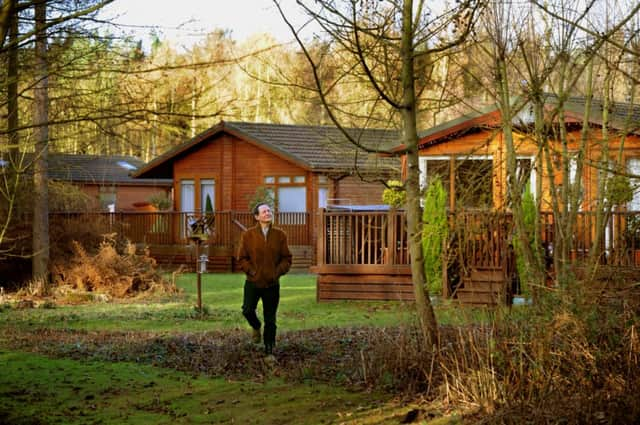Park and pride for man who runs a great estate


He smiles at the experience and gives a pretty decent impression of a Cockney accent as he recounts the brief exchange (yes I know Tottenham is in North London but it’s all the same to us up north isn’t it?).
“One of them asked what job I did and I answered that I was a farmer. His response was ‘Oi boys, rich geezer!’
Advertisement
Hide AdAdvertisement
Hide AdLittle did they know how much Charlie was playing down his role that sees him responsible for the 7500-acre Escrick Park Estate and what he has done to keep it alive, vibrant and most importantly commercially successful. But it could all have been so different for him if he’d continued on the path he was going back in the 1980s.
Following university studies he spent a couple of years in Kenya and then lived the high life in London.
Charlie talks about how his return to the estate and his subsequent takeover of its running came about. He’s not proud of what he went through prior to coming home but clearly it was a pivotal moment.
“You could say I got my life quota of drinking in pretty early. I spent about six years in London and it seems most of the time I was getting drunk. What really made the difference to my life was going into a treatment centre when I was 30.”
Advertisement
Hide AdAdvertisement
Hide AdHis drying out period brought about a clear head and he’s been sober ever since.
“When I came back I became very aware that we had to generate cash flow. Farming was not in a good position and I was very hungry and determined to protect the estate’s future. I felt our best option was to generate other income streams.”
That’s why Charlie was on the train recently. His ideas and how he has gone about implementing them over the past two decades means that he now brings the benefit of his experience to others. He was speaking on diversification interests he has pursued at Escrick Park Estate at the Farm Innovation Show.
“It’s the second year I’ve been invited to do it. Some asked whether I was worried about Capital Gains Tax but I told them that I felt it was surely better to do something rather than letting your farm or estate simply go downhill and ultimately having to sell it. I just try to add value that in turn generates cash flow. What that also means is that you can invest in the environment and less profit-driven enterprises.
Advertisement
Hide AdAdvertisement
Hide Ad“I’m the 12th generation here at Escrick and continuity is important, but it is also important for me that we are not as dependent on farming through agricultural rents and farming ourselves. I’m not really a farmer, despite what I said on the train to the Tottenham supporters, and I’ve been keen to do things that are non-farming.”
Charlie’s two main diversifications have been turning redundant farmsteads into office and light industrial units and setting up a holiday park.
Neither is a particularly ground-breaking idea as Roger Tempest seemed to corner the market of winning awards for his office accommodation at Broughton Hall near Skipton years earlier and Charlie admits to having attended an open day at Castle Howard where he saw how their holiday park was performing and that became the catalyst for his timber lodges; but there is little denying the amount of time and effort that has gone into both enterprises.
He’s overseen the transformation of seven redundant farmsteads that currently have only one empty unit out of 40 in total. The holiday park was initially set in 28 acres of woodland with 140 timber lodges and a further 40 larger sites were added in the second phase.
Advertisement
Hide AdAdvertisement
Hide AdThat doesn’t mean everything has gone swimmingly though but he’s pragmatic enough to shrug his shoulders and find a way of making things work.
“It’s a very soft market at the moment and unfortunately the one unit that has been empty for the past two years is the largest office unit we have, so we’re taking advantage of the new planning regulations and have received permission to convert again into three dwellings.
“We opened the second phase of the holiday park just before the credit crunch and that market fell off a cliff for a while. Sales have picked up again now but it was another lesson of how quickly things can change even when you think you’ve done all you can. We put in a bowling green, tennis courts and a boules/petanque court but we haven’t opened the farm shop and café we had planned just yet.”
Future ideas include woodland weddings and transforming another set of redundant buildings to houses in Kelfield. Charlie also picked up a new possibility at the Farm Innovation Show.
Advertisement
Hide AdAdvertisement
Hide Ad“There were several extolling the virtues of their glamping experiences but the one that particularly interested me was tents that were three feet above the ground giving the impression you were sleeping upstairs with an igloo-like space underneath. It seemed a low capital requirement.”
Charlie is married to Ros and they live in Skipwith. The house at Escrick Park was sold many years ago to Queen Margaret’s School.